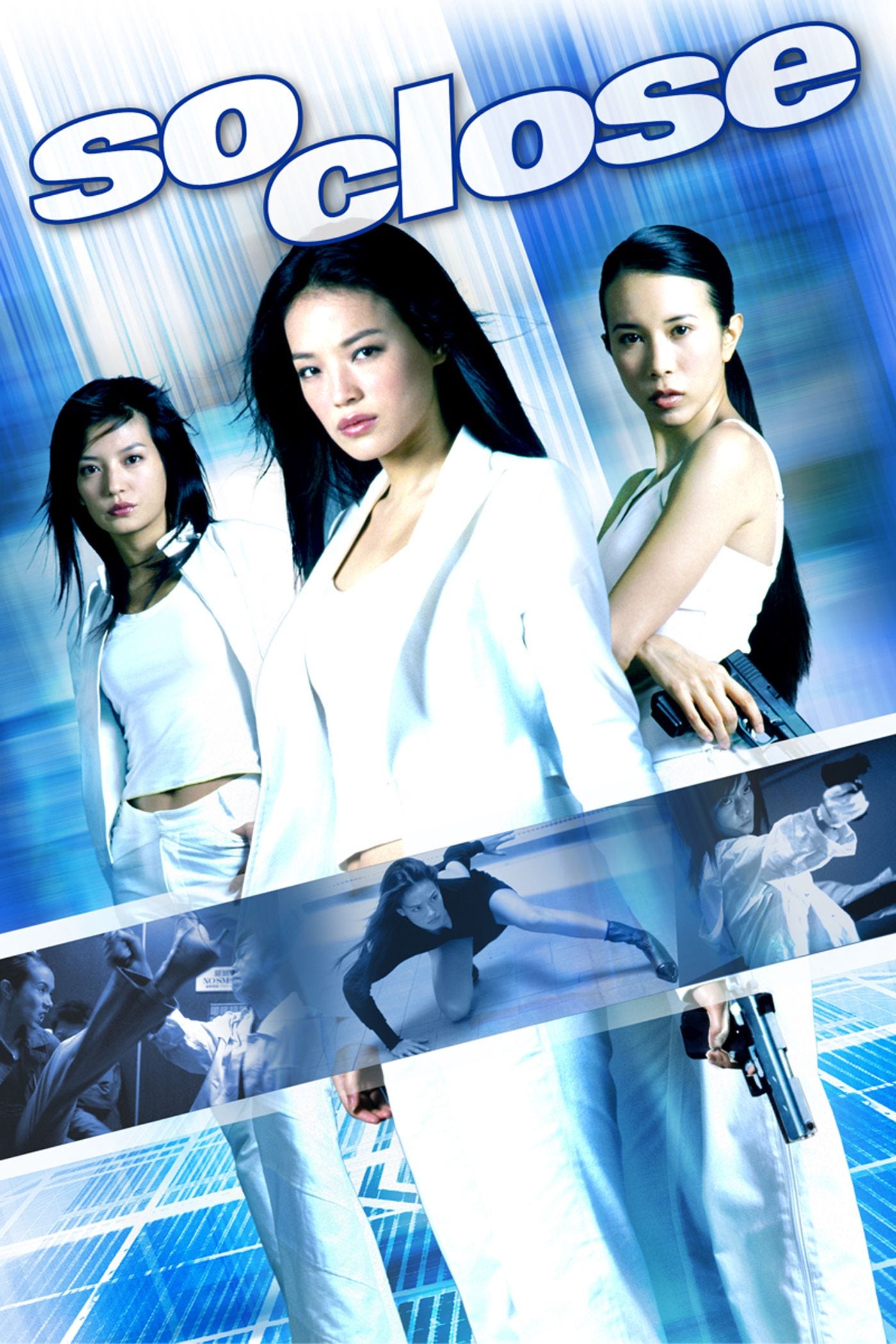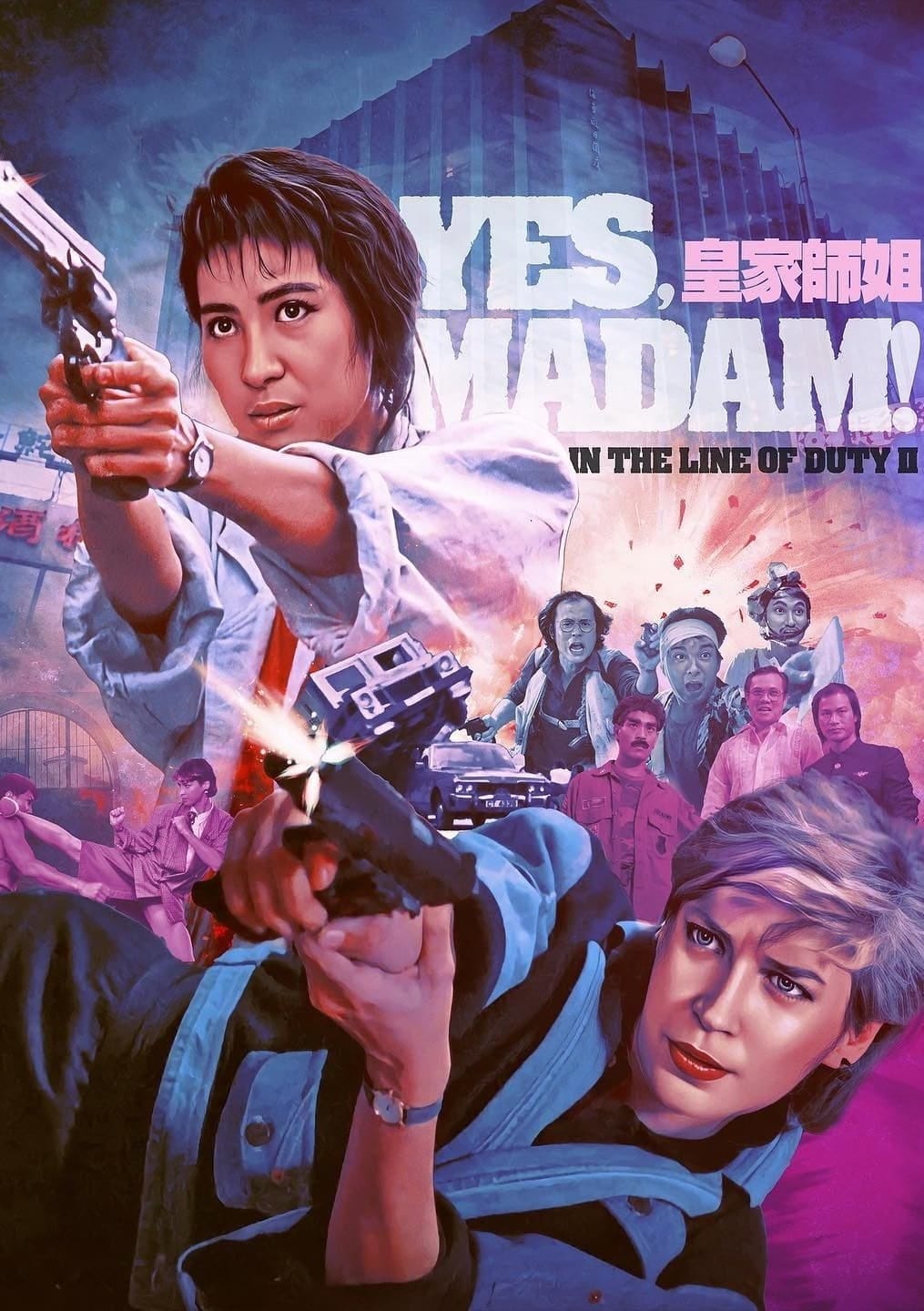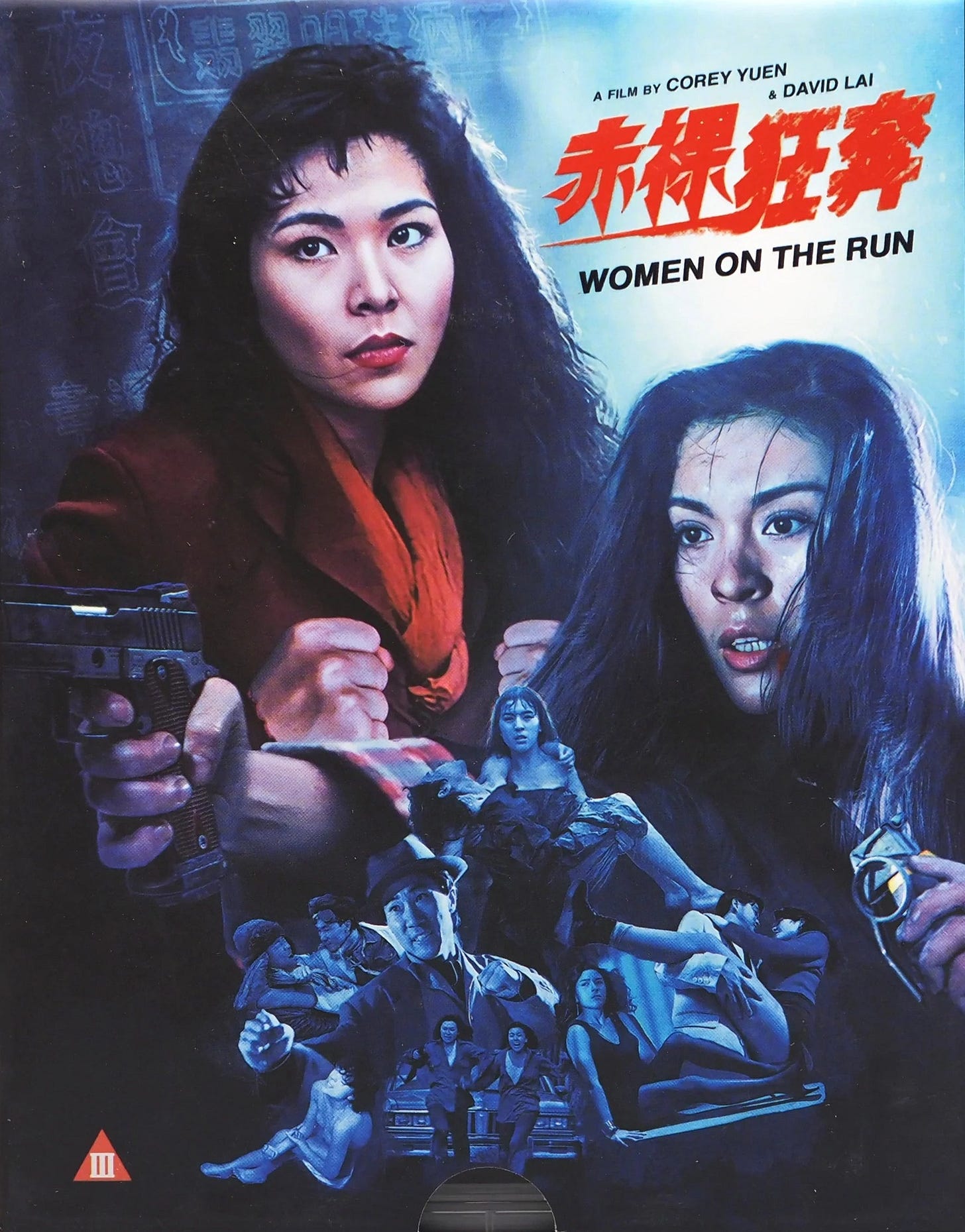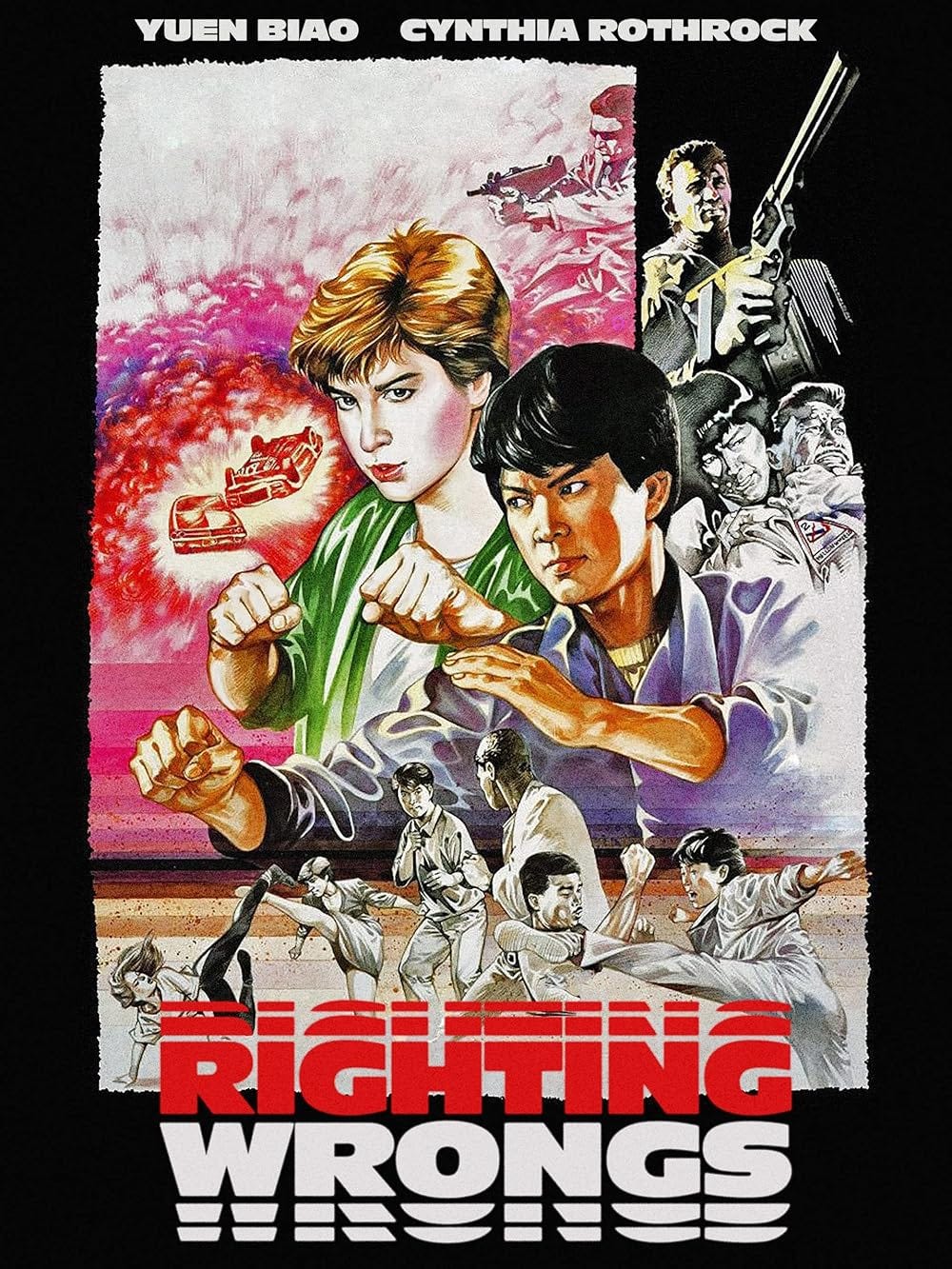Girl Power Martial Arts Movies of Corey Yuen Kwai
Ranked List of the Hong Kong Director’s Questionably Feminist Actions Flicks
If you’re looking for some fun martial arts movies led by badass women, I have a director to recommend: Corey Yuen Kwai. His movies have become my go-to for unapologetically cheesy martial arts flicks. Most of the movies on this list I found streaming for free somewhere online, usually Tubi.
Other than being the director of the six movies I will discuss below, Corey Yuen Kwai (CYK) worked in the Hong Kong film industry since the 1970s as an actor and action choreographer. From a young age, he trained in martial arts, acrobatics, and acting at the China Drama Academy under the teacher Yu Jim-yuen. His class included other future stars like Jackie Chan, Sammo Hung, Yuen Biao, and Yuen Wah. Unfortunately, we lost Corey Yuen Kwai in 2022 to COVID. He left behind an impressive body of work we can enjoy to show our appreciation for his hard work.

CYK’s first time behind the camera as a director came in 1982 with the movie Ninja in the Dragon’s Den. He was an awesome director right off the bat. This one is a personal favorite of mine, full of fantastic action and humor with a sarcastic Conan Lee complementing the coolness of Hiroyuki Sanada as a Japanese ninja coming to China for revenge. Clearly, CYK’s experience with martial arts and the film industry set him up with the skills to produce top-notch entertainment.
More specifically, I want to focus on the six movies in CYK’s directing catalog that feature at least one (usually two) leading ladies as the combat action heroes. There is an existing label for these types of movies: Girls with Guns. However, I’m choosing to call these ones Girl Power Martial Arts Movies because the action focus is on hand-to-hand combat and other random weapons found in various set locations. Shooting is involved, sure, but the label Girls with Guns seems misleading—and less fun.
In her essay “Angels on the Run: Navigating the Girls with Guns Subgenre”, Erica Shultz describes:
GWG [Girls with Guns] films are reliably homogeneous, and you can expect most of them to follow at least part of a formula: there is one or more female lead, who oftentimes shares equal screen time with a male counterpart; a contemporary urban setting, though sometimes they will venture to other countries; typically the lead is some kind of law enforcement agent paired with someone from a different walk of life (usually a criminal) or foreigner (usually Japan or America); and oftentimes there will be a male commander to which the women must report for permission to act.
Alright, so this is an established subgenre of Hong Kong action movies. I’m simply changing the label slightly to share my ranking of some fun, and perhaps formulaic, martial arts movies. But, what do I mean by “Girl Power”?
Does “Girl Power” Mean Feminism?
How are the movies in this list Girl Power Movies if they are not directed by women? Corey Yuen Kwai is the man behind the camera. From a wider perspective, is he functioning in real life as the “male commander to which the women must report for permission to act”? If he is, the movies suggest he was at least aware enough to criticize trends and tropes like these in media—all while delivering an entertaining flick for the audience to enjoy. Let me compare the situation, and my vantage point in the audience, to a U.S. director: Quentin Tarantino.
Thinking back, I’m sure that the first female led martial arts movie I ever saw was Quentin Tarantino’s Kill Bill. Inspired in part by the 1973 Japanese Girl Power Movie Lady Snowblood, Tarantino’s Kill Bill stars Uma Thurman in the leading role as a character simply known as The Bride. A former assassin, The Bride is left for dead by Bill and a gang he sends after her. She tells Bill that he is the father of her unborn child right before he kills her tries to kill her. Not finishing the job was his big mistake. Now she’s seeking her revenge.
In a 2003 TV interview promoting Kill Bill (well, he’s promoting it; the interviewer is not), Tarantino explains why the film can be empowering for girls. The interviewer is movie reviewer Jan Wahl speaking to Tarantino via video call from San Francisco-based news program KRON 4. It’s a short interview, and Wahl leads by asking if Tarantino really said that children should go see Kill Bill. Her stance even before the questioning begins is that the movie is too violent. She gives the writer-director a chance to say that he was misquoted. He does not take that out.
If you can make out what he’s saying over the interviewer interrupting him, Tarantino says:
It’s an R rated movie. If their parents will take them to go see it, they’ll have a blast. I actually think from 12 up, alright, you know, is a really good audience. They will love Kill Bill. Girls will love it because they’ll be empowered by Uma Thurman’s character in it. They’ll go home and put an Uma Thurman poster on their wall.
He goes on to talk about how Thurman’s character is a female warrior, a female avenger, engaging in one of the staples of cinematic drama: revenge. She’s not a side character like a girlfriend or someone that has to ask permission to kick ass. She does it because it’s her story and she’s the main character. That’s the simple concept I’m going with here to call these Corey Yuen Kwai directed flicks Girl Power Movies.
Whether they are Feminist Films, whether they set a good example, whether they’re appropriate for any specific age, or whether they glorify violence in an unhealthy or insidious way—these are questions for someone else and for another time. This is simply a list for fans of entertaining martial arts exploitation on film who want to see some women in the driver’s seat of the plot. These are all entertaining enough for at least one watch, but read to the end for the best one.
6. So Close (2002)
This one has three leading ladies: two sisters who both work as kung fu assassins and a dead-serious female cop on the case to chase them down. They initially fight each other but ultimately find themselves working together when they realize they are all targets of something bigger.
So Close could have benefitted from less focus on the drawn-out, melodramatic plot and more focus on the action—which has some of CYK’s signature fast-paced, beat-em-up fight choreography mixed with some stylized slow motion. The slow-mo is cool sometimes, but I prefer CYK’s faster action sequences overall. This is a later entry in the director’s filmography that came out after The Matrix. It suffered from trying too hard to lean in that direction.
I didn't get the title until I realized it got so close to being a romance movie—forbidden romance, I suppose. If I saw this when it came out in 2002, and if I were a pre-teen girl on the verge of discovering that I’m a lesbian, this would probably be my favorite movie.
5. Yes, Madam! (1985)
Michelle Yeoh plays a Hong Kong cop who has to team up with an equally badass UK cop, played by Cynthia Rothrock, to track down a microfilm containing important evidence. There is some comedy to this one as the people who have the microfilm are bumbling buddies who are low-level thieves. They dress up like hotel workers to break into guests’ rooms and steal their things. Incidentally, they steal this important microfilm and get themselves caught between martial arts kicking cops and the deadly triads who want to hide the evidence of their crimes.
This was the first movie on this list that I watched. It was the legendary Michelle Yeoh that attracted me to checking this one out and, in turn, led me to the director’s other flicks. I was struck by the undeniable energy of propulsive action.
Yes, Madam! feels like playing a retro beat-em-up arcade game while your frenemy is at the arcade machine next to you playing one of those shooter games with the plastic gun attached while a movie is playing in the background that you glance at every once in a while when your game is on a loading screen.
The action sequences were almost too much for me. Maybe I just wasn’t ready for CYK’s genius yet. Still, the comedy didn’t always work for me either. Though I place these next movies above it, Yes, Madam! will make for a solid re-watch.
4. DOA: Dead or Alive (2006)
This one is where I started realizing how much I enjoy the ridiculous action and fight choreography in CYK’s movies. I went into this with little to no expectations. I've never played any of the games this is based on. I’m not a huge gamer, but I generally enjoy simple-enough arcade style fighting games like Mortal Kombat, Street Fighter, Marvel vs. Capcom, etc. I just never happened across Dead or Alive. Film producer Jeremy Bolt apparently called CYK’s DOA “a cross between Charlies Angels and Enter the Dragon.” That’s a good way to describe it. Some badass female fighters are brought together on an island to compete in a martial arts tournament. But, of course, everyone has their ulterior motives.
CYK’s movie adaptation stars Jaime Pressly, who is so underrated. I know her as Joy from My Name is Earl. In DOA, I love her character as a representation of U.S. wrestling (the fake kind) as a fighting style—obviously played in a funny way with real-life WWE star Kevin Nash playing her dad.
Similarly, I was pleasantly surprised to see Steve Howey as well. He's funny as the nerdy tech guy, Weatherby, enamored with Helena. Like Pressly, I mostly know him from TV. His performance in DOA lands toward the end of his tenure on Reba and years before the start of the American version of Shameless.
This movie isn't some amazing masterpiece of cinema—of course—but it's a super fun watch for what it is: a silly, over-the-top martial arts romp based on a damn arcade machine.
3. Women on the Run (1993)
This is the darkest movie on this list. This is one of the rare instances in which I feel it’s appropriate to give a content warning while recommending this movie—which I am placing in the top half of my list.
I didn’t know going into viewing this one how explicit it was going to be. Not paying attention to the rating, and not understanding Hong Kong’s rating system, I didn’t realize this was a “Category III” film. In terms of the U.S. film rating system, this would be above rated R. Category III is similar to the U.S. NC-17 rating, formerly called the X rating. For an R rated film, a parent or guardian needs to accompany anyone under 18 to watch. For NC-17, no one under 18 is allowed to watch the movie under any circumstances. In the words of film historian and author Samm Deighan, whose video essay about Women on the Run is included in the Blu-Ray extras, this entry into the “Girls with Guns subgenre” is of the “transgressive Category III” style which includes explicit sexuality and gruesome violence.
It's a little slow at the beginning while being bleak and cynical. Our protagonist trains and wins martial arts competitions from a young age, dreaming of being a movie star: the next Bruce Lee or Jet Li. She rides off on a motorcycle with her boyfriend to the city to pursue her dream future. Her dreams are stolen when the man that supposedly loved her gets her addicted to heroin and prostitutes her out for money. An early voice-over quote from this character is "I hope I won't be a woman in my next life."
After being arrested, a female police officer uses this drug-addicted prostitute to track down a crime boss she should be able to identify. When the action gets going it's off the wall—once the ladies team up to fight their way out of a seedy alley.
Just as the action gets going though, it also gets even darker and genuinely hard to watch. This is where the warning comes in. There's a disturbing gang rape scene that will make you sick, filmed with the same intensity of any CYK fight scene. If you're going to completely skip one of his movies, here's a good reason. It is hard to recommend this one casually.
For better or worse, though, Women on the Run got the most visceral and emotional reaction out of me. I have to give it credit for that.
The sick-stomach feeling and general sadness stuck with me after viewing this one. At the same time, it makes the viewer think about our enjoyment of exploitation action films in general when an industry (and world) exists that almost invariably exploits women. This is why questions or morality are outside the boundaries of my list of movie recommendations here. CYK’s movies really toe the line between shallow objectification and high-brow feminist critique.
2. Righting Wrongs [a.k.a. Above the Law] (1986)
Here’s another one that makes us think about morality.
Our main character is a neutral, professional prosecuting attorney by day and a vigilante justice-bringer by night. He gets unwittingly teamed up on a case with a truth-concerned, law and order by the books cop—leading to interesting conflicting themes about right and wrong, asking the question: Are we all really bound by the same rule of law?
Yuen Biao plays the vigilante lawyer. At first he seems to be the one main character, so I wasn’t sure if I would be able to include this one. Cynthia Rothrock (as the tough cop) doesn't show up until almost 20 minutes in but immediately proves this counts as one CYK’s Girl Power Movies when she beats up a guy (and his goons) who hates her right off the bat for being a woman and white, seemingly in that order. I know I described her character as "by the book", but she gets some vigilante-type moments herself.
Through most of my viewing of Righting Wrongs I was thinking that this has my favorite plot/premise but something seems missing from the action sequences compared to the other movies in CYK's catalog. But, it picks up a lot toward the end and culminates in a truly insane ending. I learned after finishing it that an alternate ending exists somewhere out there due to strong negative reactions to the violent nature of the original Hong Kong version’s ending. I will admit that I was shocked. But, that also makes it memorable and a bold thing to commit to film.
Damn good stuff overall. Only one Girl Power Movie slightly beats it out for me.
1. She Shoots Straight (1990)
Fittingly, She Shoots Straight deals most directly with sexism and sexual assault (other than Women on the Run of course). Whether the movie fights against these is up to the viewer. But the women featured—and leading—have to deal with a world of sexism and fight a bunch of people along the way.
This one features a lot of leading ladies as Joyce Godenzi plays a police officer who marries a man with many sisters who also rank highly in Hong Kong law enforcement. One big police operation involves all the ladies going undercover as employees in a sleazy nightclub where men like to grope the ladies working there. The aim of the undercover operation is going after a Vietnamese gang causing trouble all around town. The case blowing up leads to a fight for justice and personal revenge.
As a film, She Shoots Straight displays a satisfying balance of action and plot, including family drama and some compelling instances of dramatic irony. You could say the plot is not great and maybe a little over-dramatic at times for some people's taste. For me, I'm very forgiving of some telenovela-style melodrama and editing in my martial arts exploitation movies. If it's like this and stays at an hour and a half or shorter—it works.
The fight choreography has some of CYK’s signature quickness and also some shocking moments of violence. It got some genuine gasps out of me. That being said, it is never grotesque or overly gory. It's not that type of shocking violence. (Not liking gore unjustified by the plot is probably my most old man, pearl-clutching complaint about some newer martial arts flicks).
I can say that before watching this movie I had never seen someone bicycle kick a mid-air molotov cocktail. So, that's pretty cool.
The action builds to its best points toward the end of the movie, where I was loving the sound effects as well. In general, Hong Kong action flicks of the 80s and 90s really knew how to end right at the climactic moment.
Overall, She Shoots Straight has the most rewarding mix of bad guys being detestable, good guys (I mean girls) being sympathetic but also powerful and giving the baddies what they deserve. This is what entertaining martial arts exploitations should be about: letting the audience briefly believe that we have more control over karma than we really do. The trick (other than keeping us entertained) is making it more hopeful and empowering than cynical and fatalistic.











